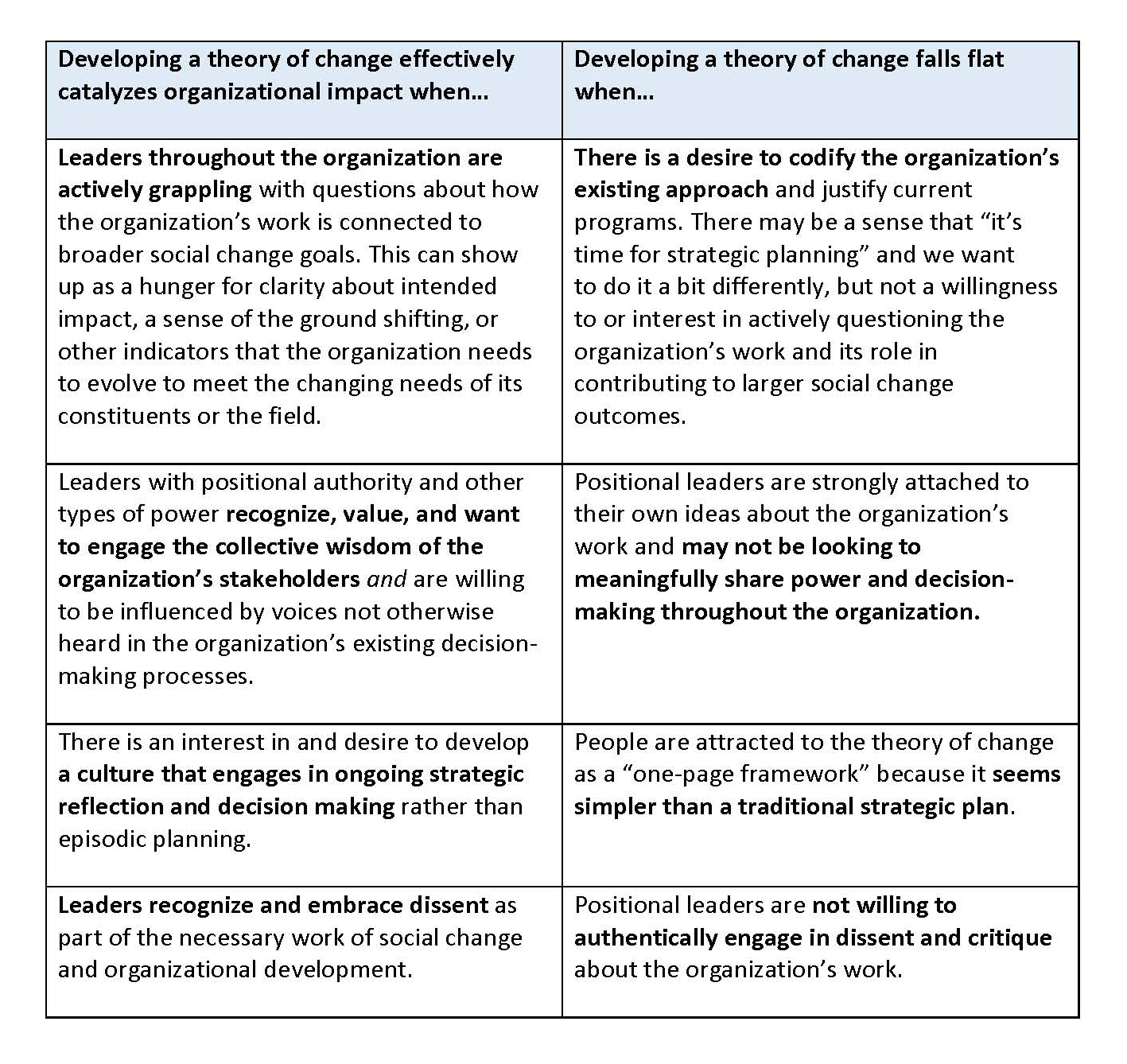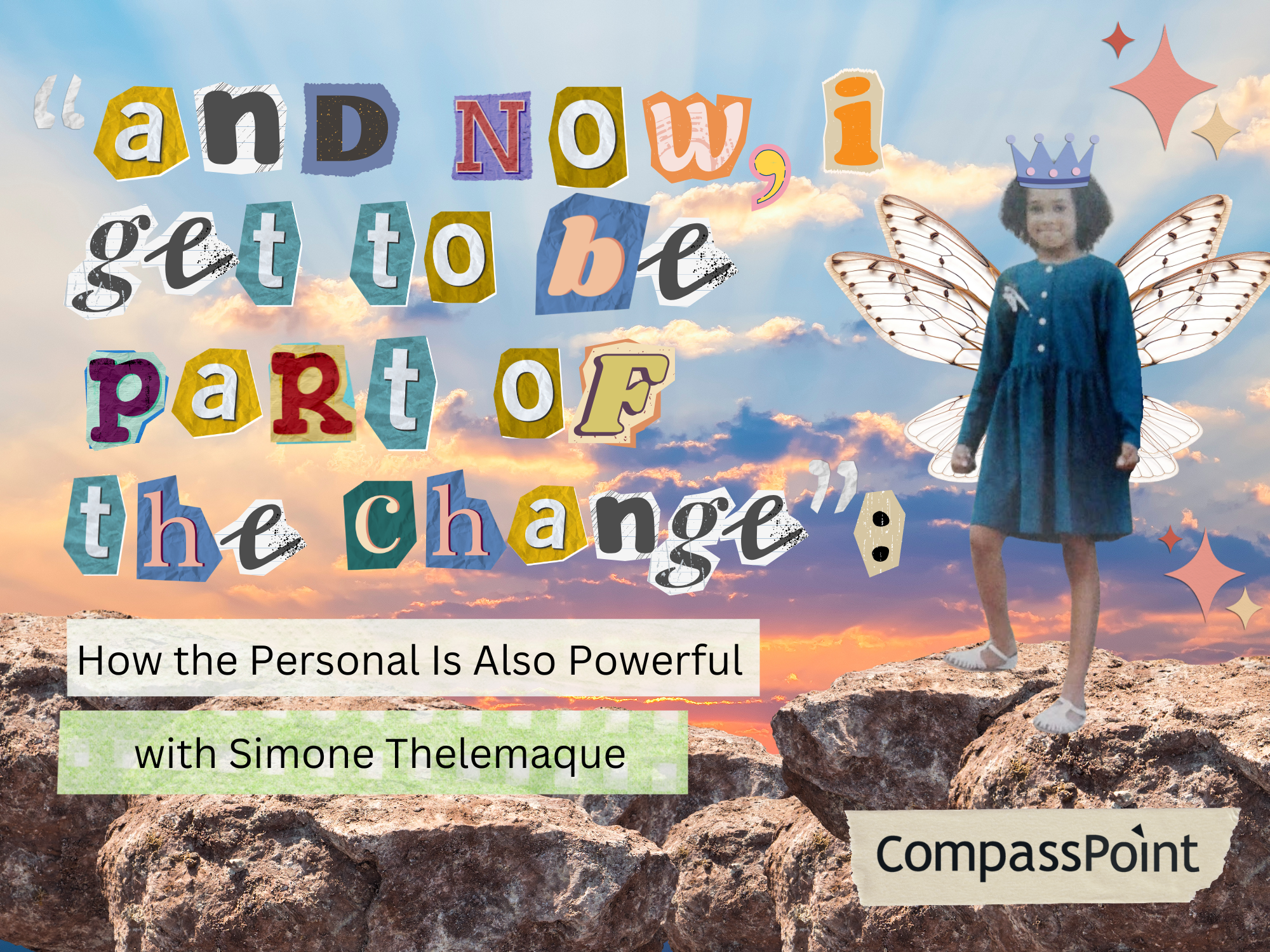As a follow-up to the blog “What is a Theory of Change and How Can You Use It?” CompassPoint Project Director Shannon Ellis draws on her experience as a consultant in this strategy area to share which situations are conducive to a successful theory of change process and which aren’t.
As we continue to develop our practices with the theory of change approach, both internally at CompassPoint as well as in our strategy work with clients, we’ve experienced and witnessed both successes and failures. Let’s be honest, there are some theories of change that “sit on a shelf” just like the thick strategic plans from yesteryear. It’s completely possible to have a theory of change process that feels like inane and incessant wordsmithing. Many processes still involve only the usual decision makers in the organization, and can hold residual assumptions about the value of top-down strategy setting. When wielded as a process or framework rather than as an approach or way of being, it can be just as limiting as the traditional tools of strategic planning.
But I’ve also been a part of theory of change processes that energize and fuel an organization’s momentum, open challenging conversations in new ways, and engage or re-engage the constituents who are most affected by the work of the organization. In my work with organizations on theory of change processes, I’ve noticed some trends about when a theory of change approach is successful in catalyzing organizational impact and when it can fall flat. The table below identifies some of these observations.
 If you’ve been through an organizational theory of change process and have insights to add, share your thoughts in the comments section below. And if you have specific questions about the theory of change strategy tool, share those too! We’d be happy to share our experiences with the process.
If you’ve been through an organizational theory of change process and have insights to add, share your thoughts in the comments section below. And if you have specific questions about the theory of change strategy tool, share those too! We’d be happy to share our experiences with the process.
Shannon Ellis is a CompassPoint Project Director specializing in consulting and training in the areas of finance and strategy.
Other Blogs by Shannon:
- "Prince: Artist and Advocate for Justice"
- "What Is a Theory of Change and How Can You Use It?"
- "Who Decides? Where Power and Strategy Intersect in Organizations"
- "Think Like a Surfer: Part One of a Two-Part Series on Organizational Strategy
- “Dan Pallotta's TedTalk is Dead Right AND Leaves Out an Important Part of the Argument"





Submit a comment